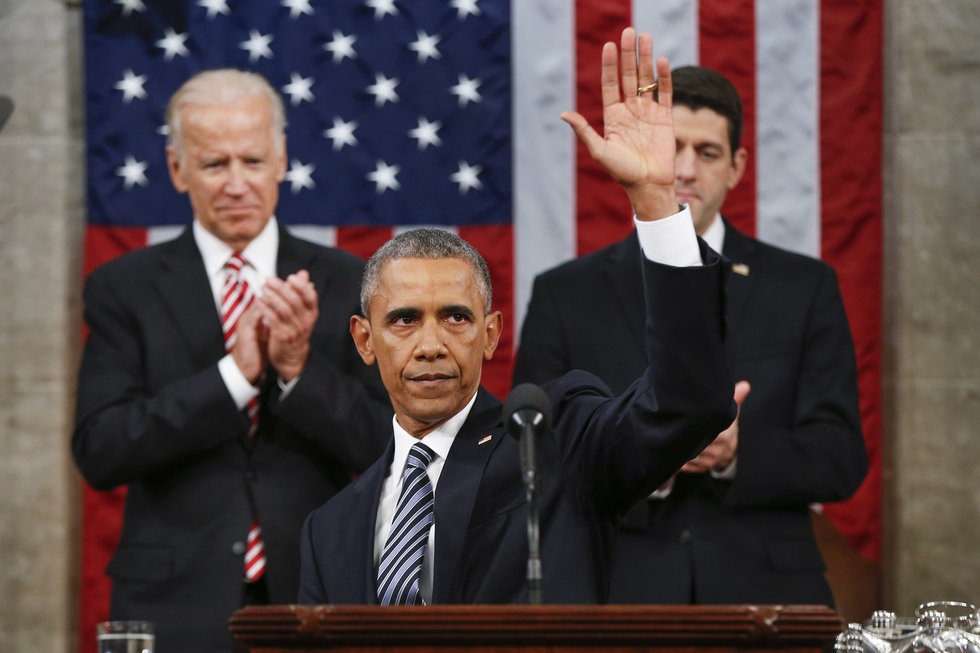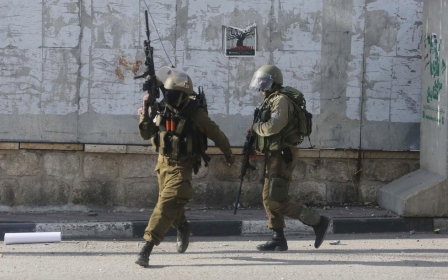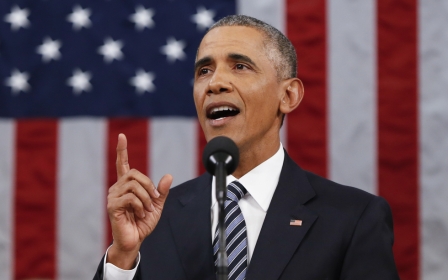Obama’s State of the Union: What was left unsaid

Farewell tours are reserved for outgoing athletes and rock stars. Almost without exception, we prefer outgoing politicians to slink off quietly into the night. For outgoing two-term US presidents, their seventh and final State of the Union address is an opportunity to spike-the-football or play one memorable riff one last time.
US presidents are the bookmarks of US history, and Obama will forever trace the American arc for the 2009-2016 years. For many years after we are long gone, historians will measure the Obama presidency against a slew of comparative performance metrics: from the state of the domestic economy to the price of gas; from the rate of crime to the rate of the US dollar. Of course, these are metrics that can be massaged and manipulated by partisans and political opponents alike.
For the dispassionate observer, Obama’s domestic accomplishments are irrefutably strong. The unemployment rate has fallen from 7.2 percent to 5.1 percent. GDP growth for President Bush’s final year in office was 0.3 percent, whereas GDP growth today is 3.2 percent - making the US arguably the most resilient economy in the world today.
Obama ticked off all of these markers during last night’s State of the Union, and he also reminded America that his signature healthcare reform legislation has nearly cut the uninsured rate by half.
All in all, Obama’s address was both optimistic and reflective. This was a victory speech, and Obama deserves extra credit for having ticked off these domestic achievements despite the opposition’s focused and belligerent efforts to sabotage, block, nullify and obstruct his presidency at every turn.
But for many, the final State of the Union address by America’s 44th president might be remembered more for what was left unsaid.
In the 2008 election, the American people gave Obama a clear mandate - that not only included salvaging America’s then haemorrhaging economy, but also to end the wars in Iraq and Afghanistan, restore America’s reputation in the Middle East, and rectify the overreach of the Bush administration’s civil-liberties busting and constitutionally unsound counter-terrorism policies.
All in all, Obama made just two references to Iraq, and only one nod to America’s longest war - Afghanistan. While he mentioned the challenges in each country, the president made no mention of counter-terror policies he had promised to reverse.
“The Bush-Cheney administration puts forward a false choice between the liberties we cherish and the security we demand. I will provide our intelligence and law enforcement agencies with the tools they need to track and take out the terrorists without undermining our Constitution and our freedom,” promised 2008 presidential candidate Obama.
Polls undertaken at the end of Bush’s presidency showed policies that included torture, warrantless wiretapping, indefinite detention, signature drone strikes, extrajudicial murder, extraordinary rendition, and military tribunals were deeply unpopular among Obama voters.
A poll taken shortly after 9/11 showed 61 percent of Americans were willing to give up some civil liberties to curb terrorism, but this number had fallen to just 27 percent by the time of the Obama inauguration.
Charles Savage, a Pulitzer Prize winning journalist and author of Power Wars: Inside Obama’s Post-9/11 Presidency, notes that outside of the use of torture, Obama not only failed to change these troubling policies, but also expanded them.
Savage notes that while Obama often blasted Bush’s policies, he did so less from a civil-liberties perspective, and more from a legal framework perspective. “It sounded like a wholesale rejection of Bush policy outcomes, but it was really just about making sure the legal foundation was solid,” observes Savage.
Now that a Democrat president has effectively ratified his Republican predecessor’s civil-liberty encroaching counter-terror policies, at some point down the road liberal historians are likely to look back on this chapter of the Obama presidency with great scorn.
Some of that likely scorn Obama took and directed towards himself. On Guantanamo Bay, Obama expressed his regret for having not met his promise to bring about a close to one of the darkest chapters in US history. When he took office there were more or less 200 detainees remaining at Gitmo. Today there are still more than 100 detainees and many of them have long been cleared of any wrongdoing.
But if you want to contrast the Obama promise with actual Obama deliverables over the course of the past seven years, a comparison of Obama’s 2009 Cairo speech with last night’s State of the Union tells a remarkable story of failed objectives in the Middle East. In Cairo, Obama spoke eloquently about the need for the US to re-earn the trust of what he called the “Muslim world”. He made it clear that resolving Palestinian statehood and ending Israel’s occupation was central to achieving that objective.
“The situation for the Palestinian people is intolerable. And America will not turn our backs on the legitimate Palestinian aspiration for dignity, opportunity, and a state of their own,” promised Obama. “The only resolution is for the aspirations of both sides to be met through two states, where Israelis and Palestinians each live in peace and security.”
But barely anyone recalls Obama mentioning the plight of the Palestinians in any speech given in the past few years, and the Palestinians were conspicuously omitted from any mention last night.
In Cairo, Obama told his Middle Eastern audience that “too much blood” had been spilt in the region, but last night Obama made no mention of the fact that the US has dropped more than 24,000 bombs in Muslim majority countries in the past 12 months alone, nor was any mention made of America’s intervention in Libya and Yemen that has led to humanitarian catastrophes in both countries.
Where Obama has turned the words of Cairo into actions, however, is progress made with the Iran nuclear deal. In that deal, Obama has not only avoided a hot war with the Islamic Republic, but also put an end to Iran’s immediate nuclear ambitions. A success by any measure, but tempered by the fact that 10 US sailors were “arrested” by Iranian military just a mere few hours prior to last night’s address.
All in all, with two wars still raging, the Middle East embroiled in flames, and a pervasive homeland-security-industrial-complex, Obama’s final State of the Union looked and sounded much like his first, absent a full-blown economic crisis.
CJ Werleman is the author of Crucifying America (2013), God Hates You. Hate Him Back (2009), and Koran Curious (2011), and he is the host of Foreign Object. Follow him on twitter: @cjwerleman
The views expressed in this article belong to the author and do not necessarily reflect the editorial policy of Middle East Eye.
Photo: President Barack Obama waves at the conclusion of his State of the Union address to a joint session of Congress on Capitol Hill in Washington, Tuesday, Jan. 12, 2016. (AFP)
Middle East Eye propose une couverture et une analyse indépendantes et incomparables du Moyen-Orient, de l’Afrique du Nord et d’autres régions du monde. Pour en savoir plus sur la reprise de ce contenu et les frais qui s’appliquent, veuillez remplir ce formulaire [en anglais]. Pour en savoir plus sur MEE, cliquez ici [en anglais].





